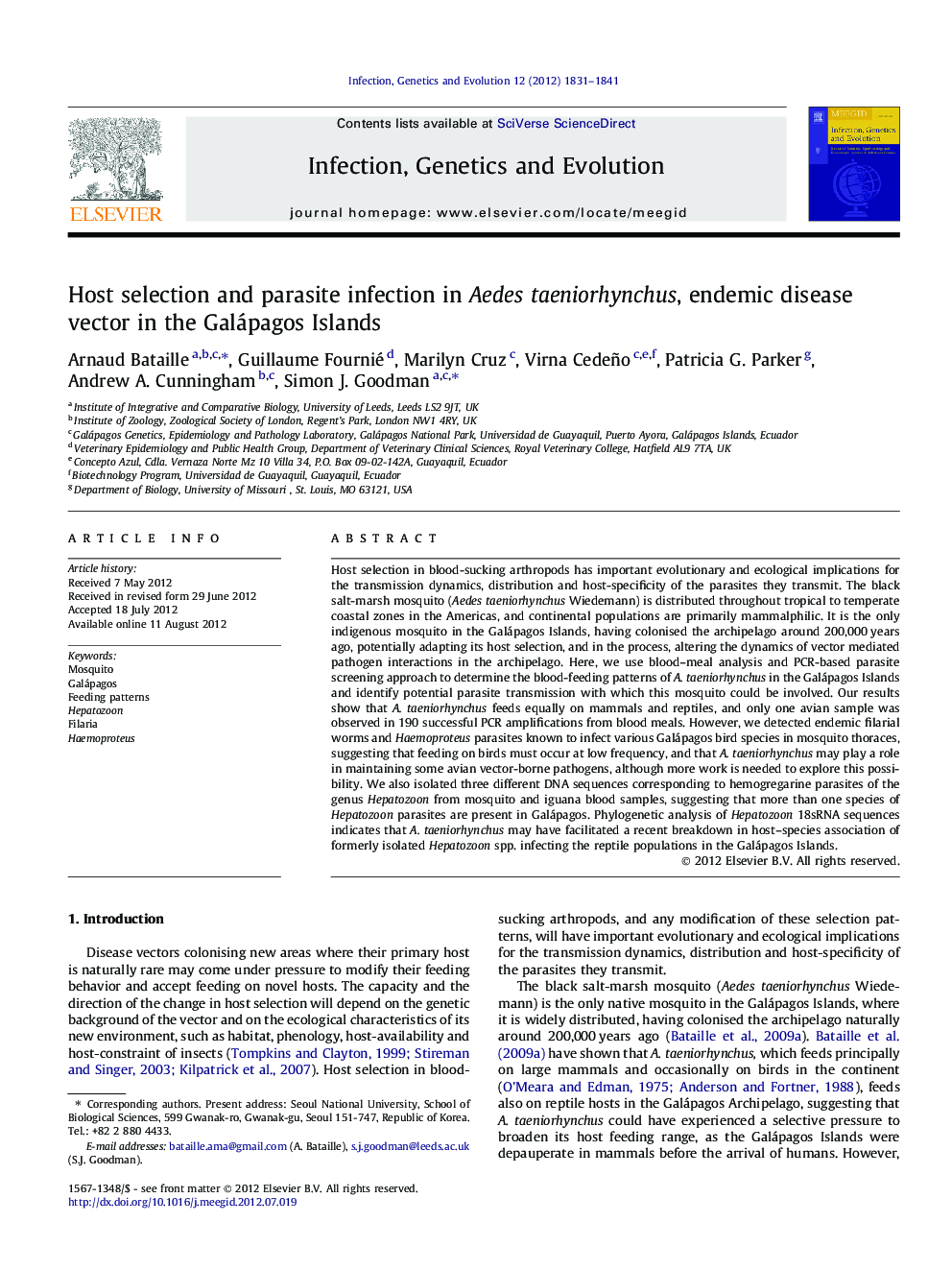| کد مقاله | کد نشریه | سال انتشار | مقاله انگلیسی | نسخه تمام متن |
|---|---|---|---|---|
| 5911314 | 1161362 | 2012 | 11 صفحه PDF | دانلود رایگان |

Host selection in blood-sucking arthropods has important evolutionary and ecological implications for the transmission dynamics, distribution and host-specificity of the parasites they transmit. The black salt-marsh mosquito (Aedes taeniorhynchus Wiedemann) is distributed throughout tropical to temperate coastal zones in the Americas, and continental populations are primarily mammalphilic. It is the only indigenous mosquito in the Galápagos Islands, having colonised the archipelago around 200,000Â years ago, potentially adapting its host selection, and in the process, altering the dynamics of vector mediated pathogen interactions in the archipelago. Here, we use blood-meal analysis and PCR-based parasite screening approach to determine the blood-feeding patterns of A. taeniorhynchus in the Galápagos Islands and identify potential parasite transmission with which this mosquito could be involved. Our results show that A. taeniorhynchus feeds equally on mammals and reptiles, and only one avian sample was observed in 190 successful PCR amplifications from blood meals. However, we detected endemic filarial worms and Haemoproteus parasites known to infect various Galápagos bird species in mosquito thoraces, suggesting that feeding on birds must occur at low frequency, and that A. taeniorhynchus may play a role in maintaining some avian vector-borne pathogens, although more work is needed to explore this possibility. We also isolated three different DNA sequences corresponding to hemogregarine parasites of the genus Hepatozoon from mosquito and iguana blood samples, suggesting that more than one species of Hepatozoon parasites are present in Galápagos. Phylogenetic analysis of Hepatozoon 18sRNA sequences indicates that A. taeniorhynchus may have facilitated a recent breakdown in host-species association of formerly isolated Hepatozoon spp. infecting the reptile populations in the Galápagos Islands.
⺠Aedes taeniorhynchus is the only native mosquito in the Galápagos Islands. ⺠A. taeniorhynchus feeds equally on mammals and reptiles, but less on birds. ⺠Endemic avian filarial and Haemoproteus parasites detected in mosquito thoraces. ⺠Multiple species of Hepatozoon parasites infect mosquitoes and marine iguanas. ⺠A. taeniorhynchus may play a role in endemic host-pathogen interactions.
Journal: Infection, Genetics and Evolution - Volume 12, Issue 8, December 2012, Pages 1831-1841